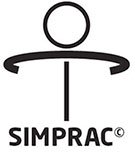
Embedding Simulation in Clinical Training in Occupational Therapy
Effect of a simulated clinical practice placement in comparison to a traditional clinical practice placement on student professional behaviours.
Support for this project has been provided by the Australian Government Department of Health.
The views expressed in this website do not necessarily reflect the views of the Australian Government Department of Health.


CC BY-NC-SA 4.0 International
The OT SIMPRAC project was led by Australian Catholic University in collaboration with Deakin University, Curtin University, The University of Newcastle, The University of Sydney, and University of South Australia.
Clinical placements are a critical component of the training for health professionals such as occupational therapists. This project was developed in response to the challenges associated with finding sufficient, suitable clinical placements that satisfy program accreditation requirements, in an increasingly competitive clinical placement market.
1. To embed simulated learning methods in clinical training across six accredited occupational therapy programs in Australia and substitute 40 hours (one week block) of traditional clinical placement training time with simulated learning methods for the purposes of assessing the effectiveness and cost-effectiveness of simulated placement.
Outcome: A one-week block of simulated clinical placement (SCP) was embedded in six occupational therapy programs across Australia. At each implementation, the SCP was compared with traditional clinical placement (TCP). Data were collected to assess the effectiveness and cost effectiveness of the SCP. In total 275 SCP placements were provided for a total of 11000 hours.
2. To evaluate whether occupational therapy students achieve a statistically equivalent level of competency in placements, where placement time is replaced with simulated learning methods, compared to traditional clinical training placements.
Outcome: The findings were that a one-week 40-hour block SCP was not inferior to a one-week 40-hour block TCP to enable students to achieve designated levels of competency. There were no differences between the groups on the unit grade, or the Student Placement Evaluation Form – Revised (SPEF-R) pass rate.
3. To evaluate whether training using simulated learning methods is able to substitute for 40 hours of clinical placement and therefore potentially decrease the total occupational therapy clinical placement requirements for each student.
Outcome: Analyses of the student learning opportunities provided by the two placement types support using a short-term SCP to substitute an equivalent length TCP. The findings related to student learning outcomes support that SCPs have the potential to decrease the total external placement requirements for each student.
The work evaluating the costs of implementing the SCP and TCP programs has indicated a complex and multifaceted picture with differences across sites and placement modes. SCP has been shown not to be inferior, but the cost data indicate that there is no simple answer as to whether SCP is less expensive than TCP.
4. To provide each occupational therapy programme with the resources, simulation scenarios, staffing experience, expertise and enthusiasm to enable training using simulated learning methods to be a sustainable clinical teaching approach into the future.
Outcome: Each participating occupational therapy program now has the resources to implement the SCP in three placement settings (mental health, vocational rehabilitation, and physical rehabilitation). They have received staff training to implement the one-week black SCP and demonstrated staff experience, expertise and enthusiasm to embed the SCP in a sustainable manner.
Project outputs comprising resources developed to implement the 40-hour SCP are available for Australian universities to use in their own curriculum. All resources required to run the SCP can be accessed via the Health Enhance website.
Resources for SCP in the practice areas of mental health, vocational rehabilitation, and physical rehabilitation include:
 Professor Christine Imms>
Professor Christine Imms>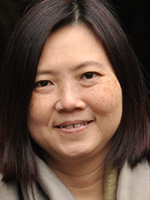 Dr Eli Mang Yee Chu
Dr Eli Mang Yee Chu
Eli Chu is an occupational therapist with extensive clinical experiences in chronic pain / disease management, adult and geriatric physical rehabilitation, in Hong Kong and Australia. Eli previously worked at the Australian Catholic University and joined Monash University in 2017. Eli is passionate in developing high quality curriculum through innovative pedagogy and research. Eli made significant contribution to the Embedding simulation in clinical training in occupational therapy project in developing The Conceptual Framework for Simulated Clinical Placement (CF-SCP), resources; designing and conducting a national multicentre, randomised controlled trial. Her research interests include health outcome measures, health simulation and rehabilitation.
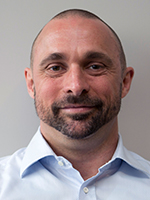 Associate Professor Stephen Guinea
Associate Professor Stephen Guinea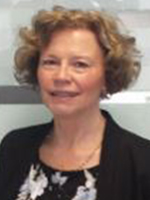 Associate Professor Loretta Sheppard
Associate Professor Loretta Sheppard
Elspeth is Discipline Lead in Occupational Therapy and Deputy Head of School of Allied Health (North Sydney) at the Australian Catholic University Faculty of Health Science. Elspeth is responsible for leading the Occupational Therapy program nationally across 3 campuses.
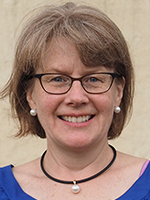 Dr Susan Darzins
Dr Susan Darzins
Susan is Senior Lecturer and Course Coordinator of the Bachelor of Occupational Therapy program at Australian Catholic University’s Melbourne campus. Susan is a team leader for academic staff who implement the Bachelor of Occupational Therapy program in Melbourne. Susan's research focuses on validation and use of participation-related outcome measures relevant to occupational therapy practice. Susan is interested in research focused on measurement of the impact of occupational therapy services, particularly in inpatient health care settings.
 Dr Samantha Ashby
Dr Samantha Ashby
Dr Ashby has been an occupational therapist since 1987. She has worked in a variety of settings including mental health, physical rehabilitation, and occupational rehabilitation. Since 1997, she has been involved in professional education in the UK and NSW. She currently works as a senior lecturer at the University of Newcastle.
Dr Ashby has run workshops in the UK and Australia aimed at increasing the occupational therapists capacity to apply occupation-focused models and their assessment tools into daily practice. Her PhD research explored the role theoretical knowledge plays in underpinning professional identity, professional resilience and career longevity.
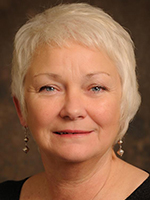 Dr Susan Gilbert-Hunt
Dr Susan Gilbert-Hunt
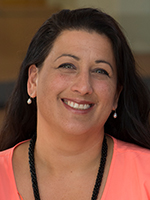 Dr Kelli Nicola-Richmond
Dr Kelli Nicola-Richmond
Kelli Nicola-Richmond is physiotherapist, Senior Lecturer and Practice Education Coordinator in Occupational Therapy within the Deakin University School of Health and Social Development. Kelli has been employed at Deakin University since 2012 and during this time has led the clinical placement program of the Bachelor of Occupational Therapy; determining key strategic directions and leading a number of quality improvement projects. Kelli also lectures in the areas of practice education and evidence based practice.
Kelli is currently completing her PhD and her research interests include; teaching and learning to facilitate work readiness, enhancing evidence based practice in allied health and facilitating participation for children with a disability. Prior to joining Deakin Kelli worked for more than 17 years in the public health and disability sectors as a clinician, manager and educator.
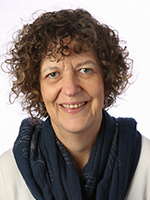 Dr Merrolee Penman
Dr Merrolee Penman
Project outputs comprising resources developed to implement the 40-hour SCP are available for Australian universities to use in their own curriculum. All resources required to run the SCP can be accessed via the Health Enhance website.
Resources for SCP in the practice areas of mental health, vocational rehabilitation, and physical rehabilitation include:
Acknowledgements
This project would not have been possible without the significant contributions from the extensive project team. The substantial team that contributed to the development of the Simulated Clinical Placement resources, the actors and occupational therapists who appear in the video resources.
Imms, C., Chu, E. M. Y., Guinea, S., Sheppard, L., Froude, S., Carter, R.,... & Symmons, M. (2017). Effectiveness and cost-effectiveness of embedded simulation in occupational therapy clinical practice education: Study protocol for a randomised controlled trial. Trials, 18(345).
View articleFor any information relating to the OT SIMPRAC project please contact:
Head of School, School of Allied Health
Phone: +61 3 9953 3000
Email: hos.alliedhealth@acu.edu.au
We're available 9am–5pm AEDT,
Monday to Friday
If you’ve got a question, our AskACU team has you covered. You can search FAQs, text us, email, live chat, call – whatever works for you.